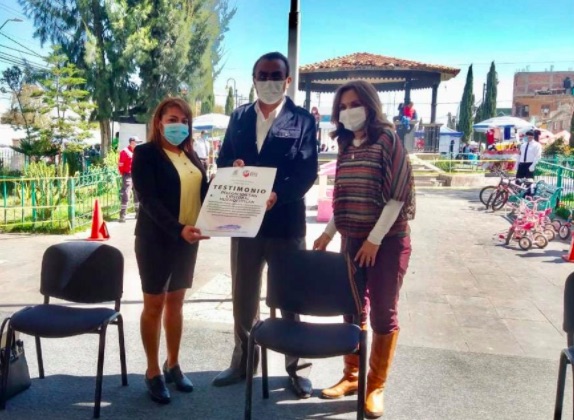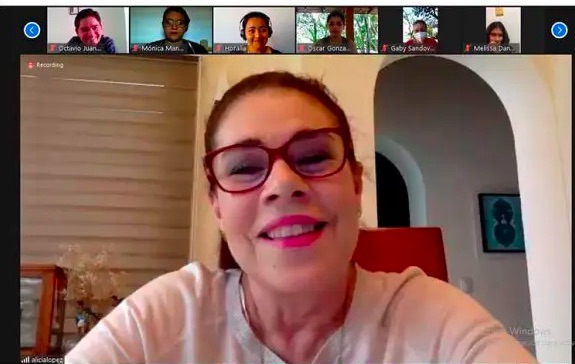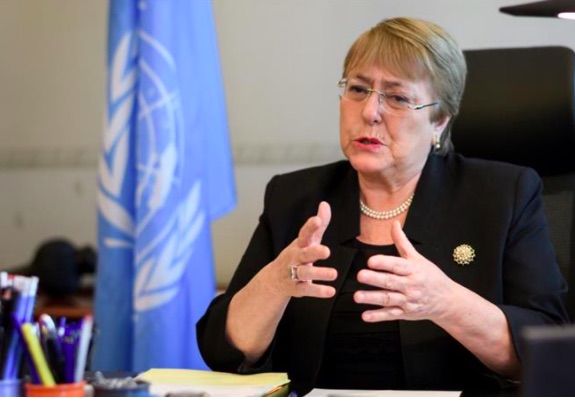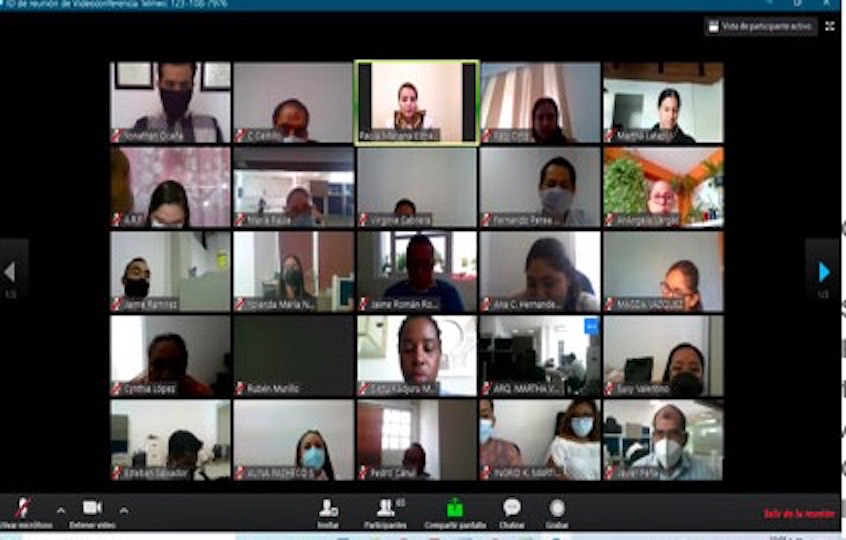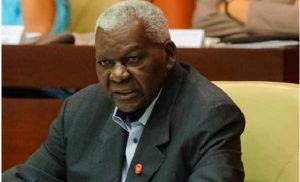FREE FLOW OF INFORMATION .
A survey by CPNN
The following 29 events in 12 Latin American countries include those listed in Google during the week of September 21-28 under the key words “International day of peace”, “Dia Internacional da Paz” and “Día Internacional de la Paz” The events also includes some listed on the facebook page of the International Cities of Peace.
About 50 events are listed in One Day One Choir and Montessori schools singing for peace, but there is no indication which events took place this year and which took place only in previous years.
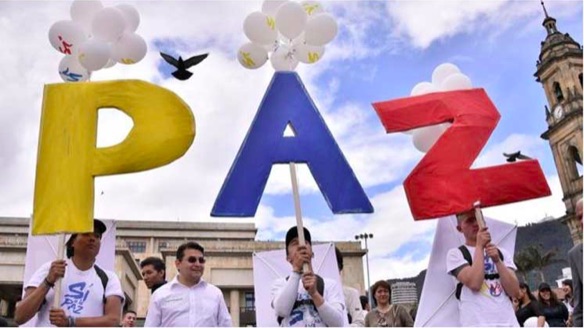
Photo from Colombia Mobilizes for Peace
CORDOBA, ARGENTINA
The Núñez Center today commemorates the Day of Peace and promotes the slogan “Forging peace together.” The Núñez Center also invites the judicial community to participate in the activities organized for this week by the “Open Chair Right to Peace and Coexistence in Diversity” of the Provincial University of Córdoba (UPC). The main objective of the proposals is to raise awareness and reflect on the need for the constant and multidimensional construction of peace. The activities agenda can be accessed at the following link: http://www.upc.edu.ar/2020/09/14/semana-de-la-paz-en-la-upc-construjando-paz-en -community/
ENTRE RIOS, ARGENTINA
Karina Medina is a teacher at Juan José Paso de Colón School No. 1, which was declared an Ambassador for Peace. “With the students we work on different projects according to the needs of each group,” she told Elonce TV. “At this moment, within the virtualida, we joined a project of Thousand Milleniums of Peace, called Por la Paz Soy Capaz de and the boys completed with their own reflections.”
PUERTO MADRYN, ARGENTINA
The mayor of Puerto Madryn, together with the “Fundación Coincidir” as Ambassador of Peace in Patagonia, raised the National Pavilion and the flag of Peace in the central building of the Municipality. Regarding the commemoration, the Mayor said that “it is to continue adapting to the circumstances that we live in this world today, it is about being present as a State and accompanying foundations or people who are involved in working for the common good. And this institution is a clear example of that, that is why it is essential that we continue to provide support because they are the ones that end up contributing to improving the quality of life in our community ”.
AQUARELA, BRAZIL :
CEIM Aquarela celebrates International Day of Peace.
The projects “Peace is the people that make”, “Living the Peace” and “For More Peace in the World”, carried out various activities according to the age of each child and with the objective of encouraging attitudes of care and love for others to grow with an awareness of values that promote peace . . . The project started with a proposal from the school to the family to celebrate the date with very cool activities for the whole family to participate. Each family was asked to hang a white ribbon or ribbon or whatever they had at home on the car or motorcycle. Also make a poster representing peace and put it on your house window.
BAHIA, BRAZIL :
Brahma Kumaris MeditaBK app is relaunched with concert in honor of International Day of Peace. The Peace Concert takes place on September 20, Sunday, from 6:30 pm to 7:30 pm as a free online activity. With musical performances, testimonials and messages from meditation practitioners, the concert aims to provide a rescue of that peace that already exists within each one, but which is overshadowed by the influences of external events, which we have no control over.
SANTA CATARINA, BRAZIL:
The 21st of September was declared by the UN as the International Day of Peace. To mark the date, the Secretariat for Prison and Socio-Educational Administration (SAP), through the Central of Penalties and Alternative Measures (CPMA) promotes, between the 21st and September 25th, the V Meeting of Hands Holding for Peace, with free online lectures that can be followed by Instagram @sapscoficial or by SAP’s YouTube at http://bit.ly/youtubesapsc. The event has the support of the Court of Justice and the Public Ministry of Santa Catarina.
OITO EM PONTO, BRAZIL :
To celebrate the International Day of Peace, the “Caravan of Peace” initiative takes place, an event with various activities related to topics such as mental health. This Friday (18th), the program Oito em Ponto counted on the participation of the psychologist and co-creator of the movement Rethinking Madness, and also coordinator of the Caravana da Paz Brasil, Ligia Esplendore.
SANTA INES, BRAZIL :
Annually, on September 21, the International Day of Peace is celebrated, instituted by the United Nations (UN) in 1981. More than thinking about peace, the initiative aims to motivate peace actions. And, engaged in this universal movement, every year, Colégio Santa Inês proposes a reflection and an action to mobilize the school community around the theme. In 2018, a thousand books were collected; in 2019, 1,000 food kits; and, this year, the goal is to share the record of a thousand solidarity and peace actions with the hashtag # OAmorÉOLaçoQueNosUneCSI.
SANTIAGO, CHILE
This September 21, on the International Day for Peace and Non-Violence, representatives of various religious doctrines, gathered at ADIR Chile, raised a prayer of faith with the hope of looking at the world with less fear and more confidence, expressing their intention to work together for a more just and dignified society for all people. The meeting took place via Zoom of at least 15 representatives of various religious expressions. Muhammad Rumié , president of the Chilean Association for Interreligious Dialogue for Human Development, thanked the attendees for their presence and expressed the need to achieve peace as a path to understanding.
BOGOTA, COLOMBIA
Protests in Bogotá during the International Day of Peace. Within the framework of this commemoration, the Bogotá Mayor’s Office allowed 20 different marches and sit-ins to take place . According to Luis Ernesto Gómez, Secretary of the Government, the marches this Monday were cited by different social organizations in nine points of the city, and will last until four in the afternoon by different routes.
Tens of thousands of people took part in the protests that were organized by student organizations, labor unions and indigenous organizations in all of the country’s capital cities. The protests that were mainly anti-war and against police violence.
CAJICA, COLOMBIA
In commemoration of the World Day of Peace .. Women and organizations of the braidedomosmas collective are starting to weave from the different territories of Colombia. We braid for a life without VIOLENCE, for social disarmament because we continue to embrace peace.
CAQUETA, COLOMBIA :
INTERNATIONAL DAY OF PEACE AND COMMEMORATION OF THE 4 YEARS OF THE SIGNING OF THE PEACE AGREEMENT
Conversation: Latin American experiences of peace: good practices and lessons learned for the local construction of peace
Speeches interspersed with video messages for peace.
COLOMBIA
Colombians from all over the country will march today in the context of the International Day of Peace to demand that the government comply with the Havana Agreement and put an end to violence in the country. It is hoped that it will be a great day of mobilization for unionists, politicians, students, peasants, ex-guerrillas and representatives of the most diverse sectors of society in this nation to join. Senator for Human Colombia Gustavo Petro invited for a calm demonstration and guaranteed that the more people who left for the march, the more non-violence will be guaranteed. This political movement agreed to take to the streets this September 21 for life and peace and appealed to its activists to unite peacefully across the country. Meanwhile, the Political and Social Coordinator of the Patriotic March asked the authorities to allow the people to express themselves at this demonstration and demanded guarantees to prevent events against the population, such as mistreatment, harassment, abuse and rape of women, among other requests . “For the right to life and against impunity, popular resistance and social mobilization”, insisted the organization. He called for uniformed personnel not to carry weapons during the mobilization and pointed out that all personnel assigned to the Colombian National Police present during the day of the mobilization must be fully identified. The end of the massacres, which total about 60 in the year, the end of the murders of social leaders, ex-guerrillas in the process of reintegration, indigenous people, women and LGBT people, and against police brutality, will be other requirements of Colombians. The organizers of the initiative invited people to light the streets and have five minutes of silence in peace, keeping their distance, using a mask and antibacterial gel to prevent the spread of the new coronavirus.
MEDELLIN, COLOMBIA :
September 21, 2020, World Day for Peace. El Sol Foundation for the 6 th consecutive year sponsors the traditional artistic and cultural march for peace in Medellin City. Antioquia. Colombia. This year the Foundation with its ambassadors World Leaders for La Paz develops programs in different cities of the world.
(Survey continued in right column)
Question related to this article:
What has happened this year (2020 for the International Day of Peace?
(Survey continued from left column)
SANGRE, COLOMBIA :
The Mi Sangre Foundation, which for 14 years has been working on different projects and initiatives for peace, respect for life, reconciliation and forgiveness, is linked on the International Day of Peace with various activities throughout the country. For the Foundation, one of the great challenges in 2020 is the pandemic, which they say, “evidenced the inequalities, the huge gaps and the challenges that they do not give wait as humanity ”. For this day, the Foundation bet on the global mobilization #Whatif (in Spanish # YSí) led by the Weaving Lab, and which reaches the country through organizations such as Fundación Mi Sangre, Fundación TAAP, Fundación Gratitud, Fundación OpePA, Colombia Take care of Colombia, Ashoka, among others. With the hashtag #Ysi, this day initiatives focused on education will be promoted. “A sector in which millions of boys, girls and young people, their families and educators currently live the anxiety of studying, completing tasks and evaluations, responsibilities and goals, amid an uncertainty that grows and affects their mental health.
UN MISSION IN COLOMBIA :
“The commemoration of the International Day of Peace is a great opportunity to forge peace together”, with these words, Carlos Ruiz Massieu, Special Representative of the Secretary General and Head of the United Nations Verification Mission in Colombia, takes a look to the path and construction of the peace that we are trying to strengthen in our country. . . The views and ties created with international organizations are of vital importance for any peace process. For Massieu, the commitments are well defined, since “we have a collective responsibility to continue with the implementation of the Peace Agreement signed in 2016. Peace cannot be a victim of the pandemic and on the International Day of Peace we remember that implementation of the agreements is not exempt from difficulties or challenges and Colombia, with the commitment of the parties and society, is advancing on the path towards the consolidation of a better country ”.
VILLA VICENCIO, COLOMBIA
With a symbolic reforestation carried out on the hill El Redentor, the Ministry of Environment of Villavicencio joined the commemoration of the International Day of Peace.
In the act that was presided over with a Eucharist, the departmental Human Rights Secretariat, the Ombudsman’s Office and all the social and environmental actors that have surrounded the recovery activities of the hill participated.
SAN JOSE, COSTA RICA :
San José, September 21, 2020. Far from being an impediment, the national emergency as a result of Covid-19 gave special motivation to the celebration of the International Day of Peace, which served as a framework for 35 young people from all over the The country will raise their voices during the seventh edition of the “Song for Peace 2020” contest, whose motto for this year was “Distanced but united”. This year, due to the national emergency facing the country due to COVID19, the “Song for Peace” contest was held virtually
CUBA :
Within the framework of the Conference “We have Memory, Solidarity against the Blockade and Terrorism”, the provincial delegation of the Cuban Institute of Friendship with the Peoples in the province of Holguín, celebrates several activities in greeting to the International Day of Peace.
ESMERALDOS, ECUADOR :
Through the Directorate of Social Action, Inclusion and Participation DASIP, the Prefecture of Esmeraldas joined the commemorative events for the International Day of Peace. One of the most outstanding actions was the symbolic delivery of white doves to the people who passed through the exterior of the Esmeraldas Prefecture building, as well as inclusive talks held in coordination with the Equality Board. “We are spreading messages of kindness and hope in the face of the pandemic. We are working for a culture of peace”, said Samuel Célleri.
SAINT MARTIN, GUADELOUPE
Last Monday, September 21 took place in the courtyard of Aline Hanson school at Sandy-Ground, in the presence of Patrice Puchal, acting director of the school, teachers and of course the 320 students of the 21 classes from CP to CM2, a ceremony organized by the educational team to celebrate the International Day of Peace. The 320 students, all dressed in white, gathered in the playground before all together forming the life-size word PEACE. The pupils hung on the branches of the olive tree, a tree symbol of peace planted by the Soroptimist Club in 2009, various small symbolic messages.
Portraits of great personalities who have worked for world peace have been displayed in the establishment, such as Martin Luther King, Mother Teresa, Nelson Mandela, Gandhi, Malcolm X and many more. Video projections were also screened in class throughout the day.
HAITI
“Let’s shape peace together” is the theme around which the United Nations system in Haiti celebrated the International Day of Peace, this Monday, September 21, 2020. This event was held online via the Zoom platform with a panel composed of representatives of the UN, government and civil society.
JAMAICA
The International Day of Peace will be celebrated on Monday, September 21 under the theme ‘’Shaping Peace Together’ and will be marked with virtual activities organised by the Violence Prevention Alliance. . . . Turning to virtual activities plan for the day, Professor Ward said that the VPA will be hosting a Facebook Live session on ‘Music in the Homes’ in collaboration with the Child Protection and Family Services Agency. The session will showcase drumming pieces by wards of the state who have benefitted from the Drum Therapy Project, which was recently implemented in six children’s homes. It is scheduled to commence at 6:00 p.m. on the VPA’ Facebook page at https://www.facebook.com/vpajamaica/.Persons are encourage to log on.
FRESNILLO, ZACATECAS, MEXICO
The International Day of Peace was celebrated in the facilities of the Municipal DIF (Desarrollo Integral de la Familia). . . The municipal president, Saúl Monreal, during his message, recognized his wife, Lupita Pérez, for the social work she does on behalf of the people of Fresnillo, since, through the Municipal DIF, they started programs such as the delivery of pantries, breakfasts, among others, to help vulnerable families in El Mineral, especially during the health contingency. . . At the event, they recognized the Children’s Village as well as the local Children’s Choir and Francisco Vanegas for their commendable work in promoting values through music. Subsequently, Saúl Monreal, mayor, and Lupita Pérez, honorary president of the DIF, symbolically released the dove of peace.
MICHOACAN, MEXICO
The College of Scientific and Technological Studies of the State of Michoacán (CECyTEM), commemorated the International Day of Peace on September 21. On the 25th anniversary of the creation of the CECyTE Michoacán, in October 2016, the educational subsystem was ratified with the Mega Flag and the flagging of its 93 schools. With this ceremony, the more than 22 thousand students of the School were incorporated into the “Together We Build Peace” Program. . . .the Flag of Peace is an important element and a badge that our young students proudly carry and that is always present in our institutional life,” said the state official.
PUEBLA, MEXICO
Within the framework of the International Day of Peace and as an exercise to make visible the importance of the participation of women in the creation of safe spaces, the Secretariat of Substantive Equality (SIS) held the discussion “Women in construction of peace ”, with the participation of the teacher Tania Sabugal Torres and the doctor Gloria Abarca Obregón.
In the virtual meeting, the two specialists defined peace in the current context and its construction from the gender perspective, mentioning that the participation of women is essential for the creation of exercise proposals that add up to both social and personal spheres.
TOLUCA, MEXICO
In order to sensitize and raise awareness among Toluca people about the importance of generating a healthy coexistence and promoting the Culture of Peace as a way of life, the municipal government of Toluca , chaired by Mayor Juan Rodolfo Sánchez Gómez , joined with various activities to commemorate the International Day of Peace. . . in a virtual way the Municipal Plan for the Prevention of the Environment of Peace and Development carried out the program “24 actions X peace “, in which from 9:00 to 18:00 hundreds of homes enjoyed a circuit to children, physical activation, musical interventions, art and many surprises in terms of reforestation, animal welfare and public and tourist spaces in Toluca.
ZAPOPAN, MEXICO
On the occasion of commemorating the International Day of Peace, the DIF Zapopan, through the Ludoteca network, shared a video explaining why this date was established by the United Nations (UN). The presentation is available in the toy library account.DIFZapopan on Instragram, on the YouTube website https://youtu.be/J44HPCJHYKc; as well as on the DIF Zapopan page on the Facebook social network. This material details the objective of strengthening the ideals of peace, especially during the COVID-19 pandemic. The importance of living together in harmony, of collaborating for a better environment, with greater equality and respect, is pointed out.
ZIHUATANEJO, MEXICO
Our Peace Day Celebration will begin with a virtual tour of Ixtapa Zihuatanejo and our Peace Monuments. Then, we will celebrate with videos of:
Yoga for Peace
Indigenous dancers
Music performances
Peace Pals Children’s Art Exhibition<
Peace Education in our schools
Tourism and Peace
Fashion show with traditional Afromexican dresses
Peace messages from the Scouts and youth of Club Rotary
Flags of the Nations Ceremony
Virtual Peace Hugs!
It will be a fun, 1-hour show to enjoy with your whole family! We are going to rock!

